Confederate Truths: Documents of the Confederate & Neo-Confederate Tradition from 1787 to the Present.
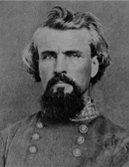

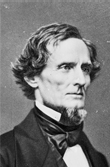
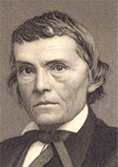


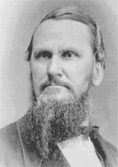
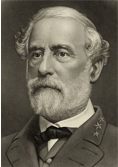
"Confederate Veteran" article titled "Faithful Old Slaves; Degenerate Progeny." It includes commentary about Latin Americans
Confederate Veteran, Vol. 11 No. 9, September 1903, pp. 407. Introduction to article which clearly explains the meaning of the "Faithful" slave stories. The Confederate Veteran was the official publication of the United Confederate Veterans, United Daughters of the Confederacy, Confederated Southern Memorial Associations, and the Sons of Confederate Veterans.
Note the comments about Latin Americans.
The introduction follows:
FAITHFUL OLD SLAVES; DEGENERATE PROGENY.
Hon. B. G. Humphreys addressed the people of his old home at Port Gibson, Miss., on behalf of the Sons of Confederate Veterans in a memorial service. He showed a spirit worthy of his sires. After noting some remarkable statistics of Mississippians in battle, he said concerning slavery:
"I would not, of course, have the institution back again if I could; but it is my fixed opinion, judging the negro who grew to manhood in slavery and the negro who has grown to manhood in freedom, that as a race he reached his zenith in all those qualities which make for civilization and Christianity under the old regime. Forty years in the history and development of a race is but a short while indeed, but in that time the finger of 'Ole Massa' and 'Ole Missus,' which always pointed heavenward, has been unobserved, and the course of the great body of the younger generation, I regret to say it, has been almost headlong in the opposite direction.
"The songs that have come down to us from the old plantation are not the songs of the caged bird; there is no wailing of the soul crying out to God for deliverance; there is no story of brick without straw. Many and many is the time that I sat as a child and looked into the black and wrinkled face of the freedman and noted the light that does not lie illumine his face as he recounted the happy days back on the old plantation. …
Confederate Veteran, Vol. 12 No. 11, November 1904, pp. 517-21. The following is an extract from an article titled, "Issues of the War Discussed," by U.S. House Representative John Sharp Williams, given to a meeting of the United Confederate Veterans in Memphis. Elisions in the original.
But there was something else, and even a greater cause than local self-government, for which we fought. Local self-government temporarily destroyed may be recovered and ultimately retained. The other thing for which we fought is so complex in its composition, so delicate in its breath, so incomparable in its symmetry, that, being once destroyed, it is forever destroyed. This other thing for which we fought was the supremacy of the white man's civilization in the country which he proudly claimed his own; "in the land which the Lord his God had given him;" founded upon the white man's code of ethics, in sympathy with the white man's traditions and ideals. Our forefathers of the forties and fifties and sixties believed that if slavery were abolished, unless the black race were deported from the American States, there would result in the Southern States just such a condition of things as had resulted in San Domingo, in the other West Indies Islands, and in the so-called republics of Central and South America—namely, a hybridization of races, a lowering of the ethical standard, and a degradation, if not loss, of civilization. . . . Slavery is lost, and it is certainly well for us and the public—perhaps for the negro—that it has been lost. But the real cause for which our ancestors fought back of slavery, and deemed by them to be bound up in the maintenance of slavery—to wit, the supremacy of the white man's civilization, the supremacy of the ethical culture, which had been gradually built up through countless generations—has not been lost. We have not had the experience of the countries to the south of us; but I ask you, my friends, in all soberness and candor, to ask yourselves how and why we escaped the evils which befell others from identical causes, under similar, though not identical, conditions? What prevented the Africanization of the South? We escaped, but those of you, even no older than I am, will remember by what a slender thread we held to safety. You will remember the ten long years of so-called reconstruction which made the four long years of war itself seem tolerable by comparison, the ten long years during every day and every night of which Southern womanhood was menaced and Southern manhood humiliated. . . . The brethren of our own race, in our own country—the country whose pen had been Jefferson, whose tongue had been Patrick Henry, and whose sword had been Washington—were against not only us but the race itself—its past, its future—were seemingly bent only on two things—our humiliation as a race in the present, our subordination as a race in the future. . . . There is no grander, no more superb spectacle than that of the white men of the South standing from '65 to '74 and '75 quietly, determinedly, solidly, shoulder to shoulder in phalanx, as if the entire race were one man, unintimidated by defeat in war, unawed by adverse power, unbribed by patronage, unbought by the prospect of present material prosperity, waiting and hoping and praying for the opportunity which, in the providence of God, must come to overthrow the supremacy of "veneered savages," superficially "Americanized Africans"—waiting to reassert politically and socially the supremacy of the civilization of the English-speaking white race. But what gave them the capacity to do this sublime thing, to conceive it and to persevere in it to the end? to wait like hounds in the leash—impatient, yet obedient to the call of the huntsman's horn—which came upon the heels of the autumn elections in the Northwestern States in 1874? What gave this capacity to the "easy-going, indolent, life-enjoying" Southerner? What if not four years of discipline, training, hardship? Four years which taught the consciousness of strength and mutual courage, the consciousness of capacity for working together, the power and the desire of organization, and which gave them, with it all, a capacity for stern action when required by stern events? But for the war—the lessons which it taught, the discipline which it enforced, the capacity for racial organization which was born with it—I, for one, do not believe that conditions in Louisiana, South Carolina, and Mississippi to-day would be very far different from what they are in Hayti, Cuba, or Martinique.
Neither of these causes is a lost cause. . . . The very men who told us in the sixties and the seventies that "one man was as good as another," no matter what the state of his civilization, no matter what his race traits and tendencies, are the very men who now, in establishing new governments in the new insular possessions, not only admit, but strenuously contend for the necessity of making such provisions of law as will prevent the white men in those possessions from being ruled by other races. The act of Congress for the government of the islands of Hawaii is almost identically the Mississippi Constitution reenacted, and the reason for its passage was the same—namely, to secure, as far as possible, without violation of the Fourteenth and Fifteenth Amendments, the white man's supremacy there, and this, too, although the native Kanakas in the Hawaiian Islands have a percentage of illiteracy less than that of any State in the Union except one, and although the white men in the islands do not constitute one-fifth of the population.